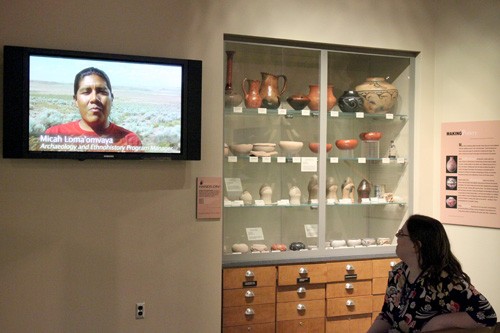Today Micah Loma’omvaya will be lecturing on Hopi Indian running traditions at the Arizona State Museum.
Loma’omvaya hopes that the presentation will provide insight into Hopi culture, and will demonstrate the importance of educating Hopi youth in order to keep their traditions alive.
Loma’omvaya is a UA graduate and a consulting anthropologist who currently works on the Hopi Indian reservation in Second Mesa, teaching youth about Hopi traditions.
In the Hopi tribe, a runner is a person who wakes up at dawn and embarks on a long and difficult journey across the desert as part of a ceremony in which members of the tribe pray for clouds and rain. Though mostly a ceremonial practice, Hopis also run to catch their own food. Runners are revered by the Hopi for their fitness and ability to provide life and resources to the village.
Loma’omvaya believes that speaking about the running tradition, fitness, and conventional farming traditions of the Hopi tribe will provide resources to Hopi villages.
“”He is using the past to improve the future. He teaches Hopi youth about farming traditions, land stewardship and all culturally significant information to help them improve their future,”” Beth DeWitt said. “”This makes them economically self-sufficient, and it revitalizes some of the older traditions.””
“”Just knowing about other cultures is enriching, but it is also empowering. In the sense that understanding other people and their culture helps build peace and a more civil society,”” DeWitt said.









